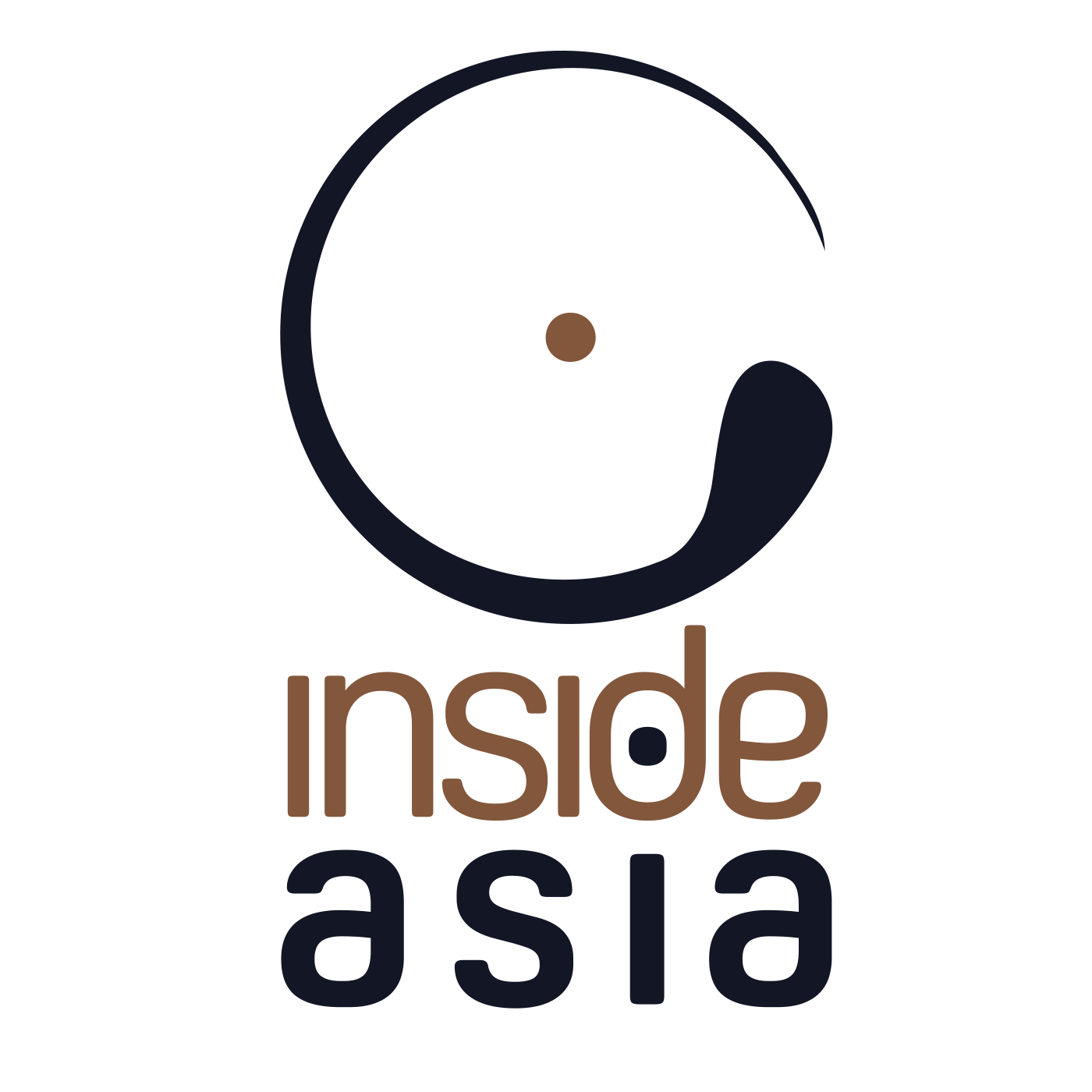Episodes
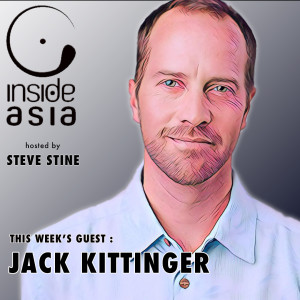
Sunday Aug 08, 2021
The Ocean Economy (w/ Jack Kittinger)
Sunday Aug 08, 2021
Sunday Aug 08, 2021
When you think of the ocean, what comes to mind? Rolling waves and the soft pounding of the surf? Boating? Fishing? Cocktails at sundown? While you’re relaxing and enjoying these sights and sounds, remember this: The ocean doesn’t rest. In fact, it never stops working.
Indeed, without our oceans and all they offer, life – as we know it – would not exist. Over 70% of our planet’s oxygen is produced by the ocean. 90% of Earth’s heat is absorbed by it. And because of the amount of carbon we humans dump into the atmosphere, the oceans are 30% more acidic than ever before. The changing temperature and make-up of our open waters is bad enough. But as if to add insult to injury, annually we dump eight million tons of plastic into the ocean, destroy tens of thousands of kilometers of coastal wetlands to make way for resorts and housing developments, and have so over-fished the seas that by 2048, all seafood, as we know it, will be gone, unless we do something about it.
That’s the bad news. Now here’s the good news. The world is waking up to the power and importance of our oceans. We have science to thank for that, but also a rising consciousness among politicians and industrialists who see that failure to protect our oceans will most assuredly result in social and economic chaos. Nothing like the threat of losing power or profit to drive some positive behavior change. At the epicenter is Asia, which represents over 90% of global fish and seafood farming and almost half of all commercial fishing.
Here to talk about oceans and the challenges we face is Jack Kittinger, a Senior Director at Conservation International and Head of it’s Center for Oceans.
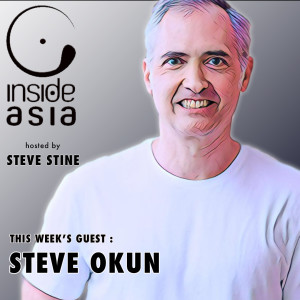
Sunday Jul 18, 2021
Riding the ESG Wave (w/ Steve Okun)
Sunday Jul 18, 2021
Sunday Jul 18, 2021
If you hear the acronym “E-S-G” being bandied about, it’s for a reason. The world is waking up to the fact that traditional business practices are no longer enough to meet the needs of the 21st century. ESG stands for Environmental, Social, and Governance. Together, they form the foundation for a new set of principles that codify a new way for companies and investors to operate. They also speak to the so-called “intangible” assets within an organization. That can make them hard to measure, and one thing business executives hate are things that are hard to measure.
It seems like every time you look up, some management consultant or business guru is introducing a new concept to supercharge the enterprise. Each new process has had its day in the sun, and an acronym to match. Remember BPR, “Business Process Re-engineering?” Or how about ERP, “Enterprise Resource Planning. And who could forget CRM, “Customer Relationship Management.” Even the folks in the back-office had their three letters. To keep it simple, they called it ABC, “Activity Based Costing.”
If the mere mention of these past activities bore you to death, let me offer hope. ESG is different. It has soul. Got your attention now? Then sit back and listen to my conversation with Steve Okun. He’s been a guest on Inside Asia before. In past episodes, we’ve covered impact investing, US politics, and international trade. Steve has a diversity of talents and interests, but a cornerstone issue for him these days is ESG. He plies his trade by serving as a Senior Advisor with McClarty Associates and chairing the Global Private Capital Association in Southeast Asia.
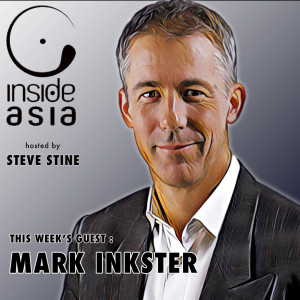
Sunday Jul 11, 2021
Sustainable Angels (w/ Mark Inkster)
Sunday Jul 11, 2021
Sunday Jul 11, 2021
This week on Inside Asia, we take a look at the world of seed investing. I’m not talking about farming, although, in some ways, I am. I’m talking about the way good, early-stage ideas attract seed capital to get their ventures off the ground. And while I don’t have the data to support it, I suspect that the number one reason why most great business or product ideas never see the light of day is for one reason, and one reason only: Money.
After calling in favors from friends and family and tapping out the credit card, there’s a funding gap. To fill it, entrepreneurs oftentimes turn to angel investors. They come in all shapes and sizes. Some are successful entrepreneurs themselves, happy to spread their new-found wealth to help others like them. Others organize themselves into groups with a common set of investment goals or interests. In recent years, online platforms have emerged, letting almost anyone get involved. Like buying one hundred lottery tickets, just one might get lucky.
Increasingly, angel investors are starting to specialize. Assemble together a team of consumer bankers, payments experts, and techno-geeks, and you can – for example - specialize in FinTech. Think about how technology can be applied to solve climate change, and you become Sustainability investors. That’s exactly what my guest this week has done. Mark Inkster is a technologist at heart. He’s spent decades in the region holding strategic roles at Yahoo!, eBay, Microsoft, and a handful of startups. Earlier this year he co-founded Asia Sustainability Angels, and together with a hand-full of others, he’s formed a circle to seed early stage companies bent on solving some of the biggest sustainability problems of our day.
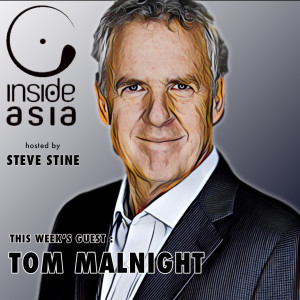
Sunday Jun 27, 2021
Putting the Purpose in Strategy (w/ Tom Malnight)
Sunday Jun 27, 2021
Sunday Jun 27, 2021
My guest this week is Tom Malnight. He took time to speak with me from Lausanne, Switzerland, where he serves as Professor of Strategy at IMD Business School.
We live in an era when time-tested business practices are all of a sudden being called into question. The same goes for strategy; that nebulous part of the planning process that asks you to take a 30,000-foot view then bring it down to actionable outcomes.
The fact is, there are as many theories on strategy as there are organizations in need of one. Some take it seriously, employing high-paid consultants to produce thick and colorful playbooks that are then left unopened. Others try to make it sound simple. Remember Jack Welsh, GE’s notoriously outspoken former CEO. He once famously said (and I quote): "In real life, strategy is actually very straightforward. You pick a general direction and implement like hell."
That might have worked during the 1980s and 90s. In fact, by all traditional measures, it did work. GE’s revenues grew five-fold under Welch’s leadership. Today, however, running a business is more nuanced. Stakeholder Capitalism is far from straight-forward. Just how strategy has changed and how companies are failing to adapt is the subject of this week’s conversation. And wouldn’t you know, Corporate Purpose is playing a big part.
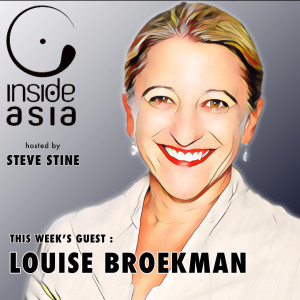
Sunday Jun 20, 2021
Advisory Boards Come of Age (w/ Louise Broekman)
Sunday Jun 20, 2021
Sunday Jun 20, 2021
There’s not a person or organization out there that couldn’t do with some good advice, particularly in times like these. Perhaps, therefore, it’s no surprise that organization’s the world over are reaching out and establishing Advisory Boards as a way of bringing outside expertise in. This rush for talent and insights should come as no surprise.
Companies, large and small, are inundated with a new set of complex challenges. They’re asking questions, like: How do I build a cyber-security network to stave off hackers? What does it mean to use artificial intelligence ethically? Or, how do we, as an organization, create diversity and inclusion policies to attract the next generation of talent?
You might say this is the job of the leadership team. But who’s going to run the day-to-day business if these kinds of issues keep popping up? Some say, it’s the responsibility of the Board of Directors. Aren’t they supposed to see problems arising before they happen? They are. But oftentimes, they don’t. There are reasons for this, and it all comes out in my conversation this episode with Louise Broekman, Founder and CEO of the Brisbane-based Advisory Board Centre.
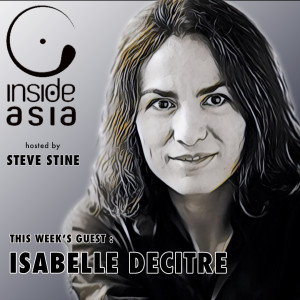
Monday Jun 07, 2021
Future Food (w/ Isabelle Decitre)
Monday Jun 07, 2021
Monday Jun 07, 2021
My guest this week is the Founder and CEO of ID Capital, a Singapore-based firm with a focus on food. It’s an age-old industry now receiving high-profile attention from investors, inventors, and activists. It seems like everyone, these days, has something to say about the future of food.
Here to help us break it down is Isabelle Decitre. After successive roles with high-end brands like Alfred Dunhill, Cartier, and Hennessy, she gave it all up in 2014 to focus on sustainable and disruptive food solutions. She and her colleagues now work with venture capital firms to help advise and direct them on deals that show promise of augmenting or displacing traditional food products.
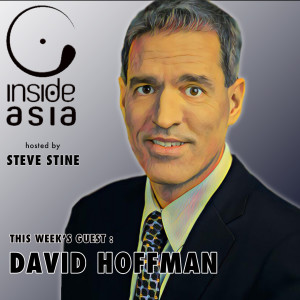
Sunday May 30, 2021
MNCs Weigh New China Risks (w/ David Hoffman)
Sunday May 30, 2021
Sunday May 30, 2021
Is global enthusiasm for China investment cooling? That’s the question I pose in this week’s episode. My guest is David Hoffman, Senior Vice President for The Conference Board in Asia, and Managing Director of the China Center for Economics and Business.
We got together on the back of an article David just posted insisting that now was a critical moment for MNCs to step up their game, align their internal communications, and ensure that the rhetorical noise from on high doesn’t detract from the real story on the ground. This isn’t to say that doing business in China today doesn’t come with some significant risk. But it does suggest that the reasons for staying, doubling down or retreating, require new levels of thoughtful consideration. Are overseas investors still bullish? Are foreign companies still welcome? Is a China strategy still essential? Over the course of the next 40 minutes we explore these questions and more.
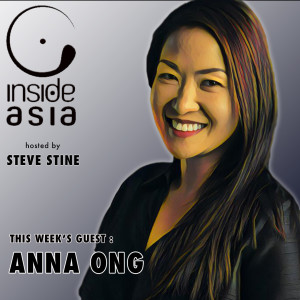
Sunday May 23, 2021
The Way of the Storyteller (w/ Anna Ong)
Sunday May 23, 2021
Sunday May 23, 2021
Everyone loves a story. This statement is as true today as it likely was 5,000 years ago. We, as a species, are drawn to stories like bees to honey. Why is that exactly? Here to discuss it with me is Anna Ong, Founder of "What’s Your Story?", a Singapore-based outfit that uses storytelling to shape individual and corporate purpose.
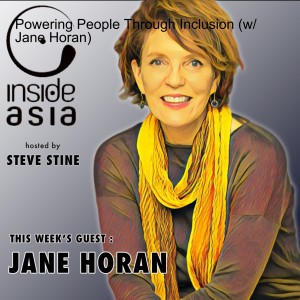
Sunday May 16, 2021
Powering People Through Inclusion (w/ Jane Horan)
Sunday May 16, 2021
Sunday May 16, 2021
I know I’ve been relentlessly flogging the Corporate Purpose theme these past few months. I’ll be honest, I can’t help myself. It’s a big part of what I do these days. But more importantly – and I mean this – it’s a topic that simply cannot be ignored. If anything, Covid-19 has shown us that we can no longer rest on our laurels and expect things to get back to normal. People and planet are suffering in new and terrifying ways. There is a major role to be played by corporations and a purpose-agenda is the first best way to make a difference. That means paying new levels of attention to all stakeholder groups and not just shareholders. Customers, suppliers, the environment, communities, and employees in particular, require new levels of investment and support.
If you’re a business leader, you might say that’s a tall order in the midst of a pandemic and economic crises. But the reality is, you don’t have a choice. Those that get out in front on this will be the employer, provider, and corporate citizen of choice. The others will fade away. Dinosaurs of an era long-past.
This week, we tackle the subject of employee inclusion. Here to help explain is my guest, Jane Horan, founder of The Horan Group, a strategic consulting firm focusing on organizational inclusion, diversity, and purpose.
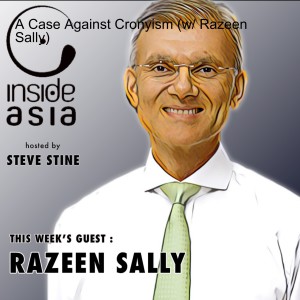
Sunday May 09, 2021
A Case Against Cronyism (w/ Razeen Sally)
Sunday May 09, 2021
Sunday May 09, 2021
Conversations – most would agree – are best had in person. Yet, our recent bout with Covid has shown that sometimes technology is necessary to keep that conversation flowing. When restrictions lifted several months back, I was quick to return to in-person meetings, on location. It was nice while it lasted. In recent days, Singapore made a call to re-impose rules to keep us at home, out of the office and away from crowds. It’s probably the right decision, but I confess, the thought of going backward instead of forward is mildly distressing. I have the feeling I’m not alone.
Nothing replaces face-to-face engagements. Warm up to a conversation with a coffee or a meal, and the entire tone and tempo changes. It’s noticeable. Or at least, I think it is. Find a place that puts a person in a calm and positive frame-of-mind and you can literally hear the difference. I’d like to think that the conversation you’re about to hear captures that feeling.
My discussion with Razeen Sally took place after a sumptuous Thai meal at the Jim Thompson Restaurant just off Tanglin Road here in Singapore. There are many beautiful places to dine in the city, but this restaurant is among my favorite. High ceilings, exotic décor, and…did I mention the food…it’s really something special. It all made for great conversation.
Razeen is Associate Professor at the Lee Kuan Yew School of Public Policy. He’s also a mix of Welsh and Sri Lankan. It was – in part - the thing that drew him back to his country of origin several years ago. That trip (and subsequent others) resulted in a book: Return to Sri Lanka: Travels in a Paradoxical Island. And so it was, we joined up to talk about those paradoxes, the evolution of Sri Lanka, and the example it sets (or not) for other emerging economies.

